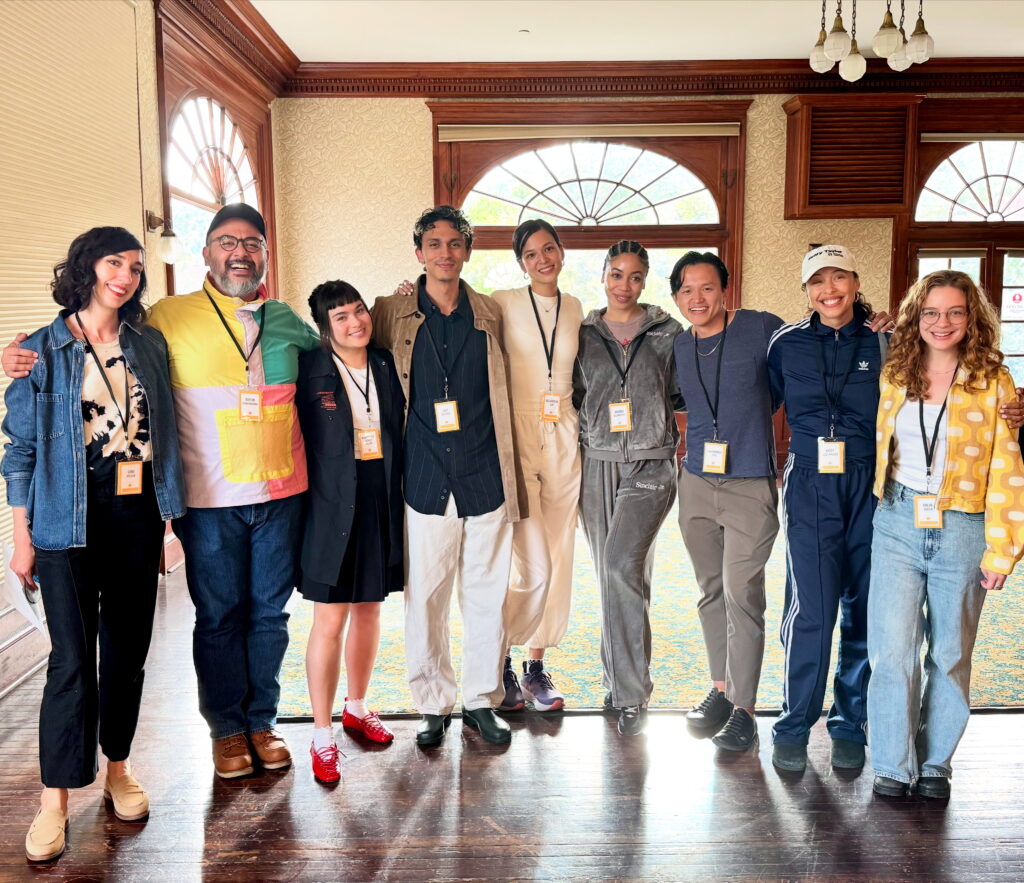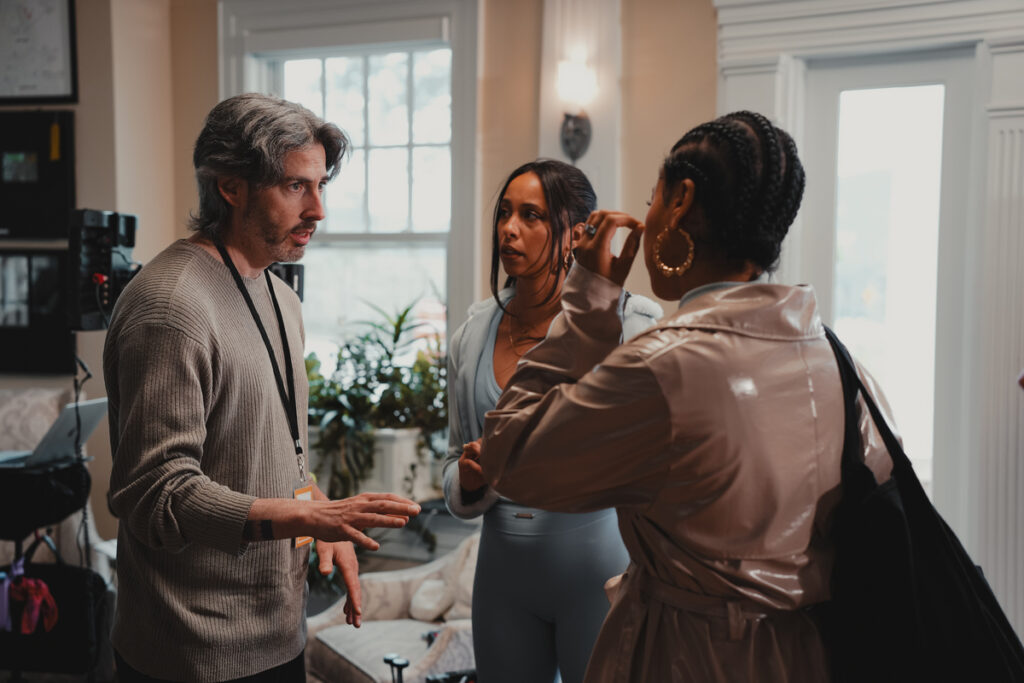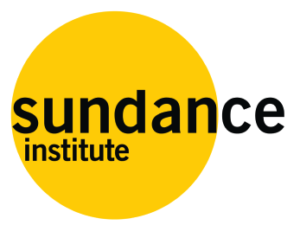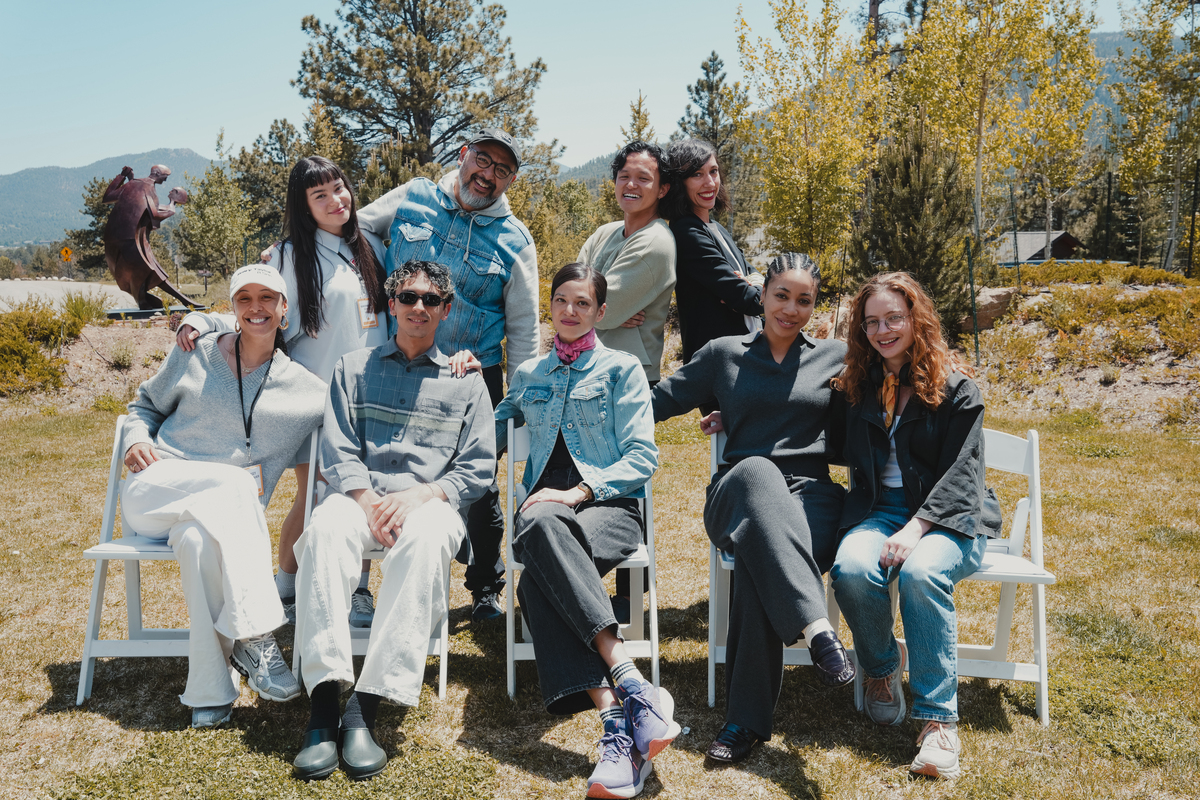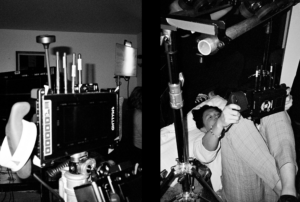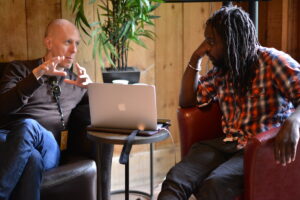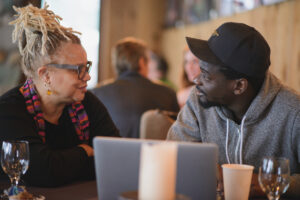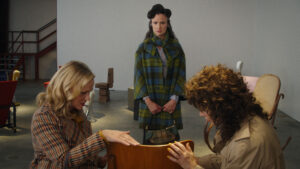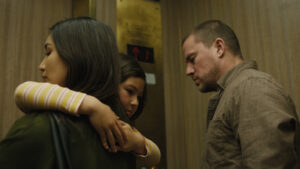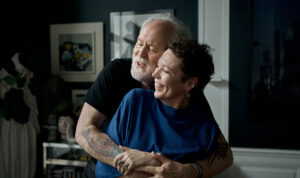The 2025 Directors Lab fellows gather together for a group photo. Photo by Gabe Rovick
Dear friends,
As I sit outside in the long golden light of summer, I find myself reflecting on these past few months at Sundance Institute — and feeling deeply inspired. So much has unfolded, and thinking about the work we’ve done and the incredible artists we’ve supported fills me with much gratitude, joy, and hope.
We’ve just recently wrapped our 2025 summer labs, and what emerged was nothing short of extraordinary. Across every program, a bold, generous, and deeply connected community of independent artists took shape — each one grounded in the belief that risk-taking, authentic storytelling, and freedom of creative expression are the foundations of meaningful storytelling.
Our labs live at the core of Sundance Institute’s year-round work with a group of over 250 artists developing their projects and craft with the support of an incredibly generous group of advisors. The community of artists coming together to inspire each other and stay open to learning and imaginative possibility lives at the center of what we do.
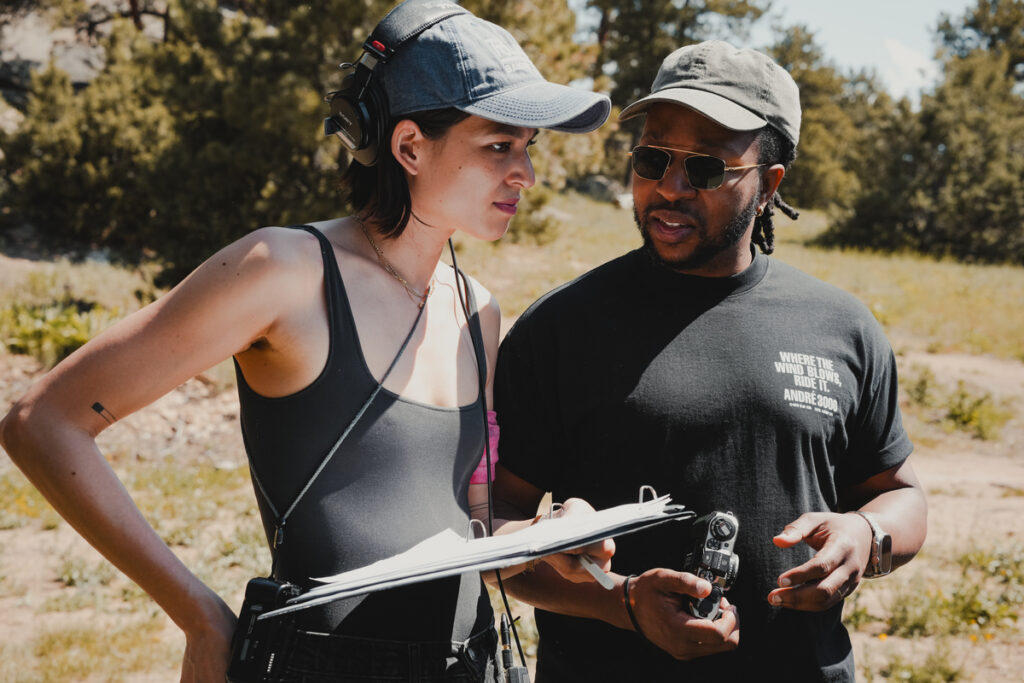
At our Directors Lab, held at the breathtaking Stanley Hotel in Estes Park, Colorado, transformation was everywhere. For our nine fellows — emerging filmmakers with stories rooted in Cambodia, Malaysia, a Mohawk reservation in Canada, and across the U.S. — this was a space of discovery and creative courage. From the crews and actors to our brilliant advisors and dedicated staff, everyone showed up fully, creating an environment where experimentation, vulnerability, and growth could thrive. This lab was a profound reminder that when artists are supported to take risks, real breakthroughs happen.
Evenings were a master class in artistic resilience. We watched Eve’s Bayou with writer-director Kasi Lemmons and DP Amy Vincent — both reflecting on their first film — and Thirteen with writer-director Catherine Hardwicke and editor Nancy Richardson. We also screened Nickel Boys with cinematographer Jomo Fray. These were followed by an unforgettable conversation with artistic director Gyula Gazdag and filmmakers Karyn Kusama, Ed Harris, and others about the disasters that became turning points and the failures that taught them how to build better, bolder work.
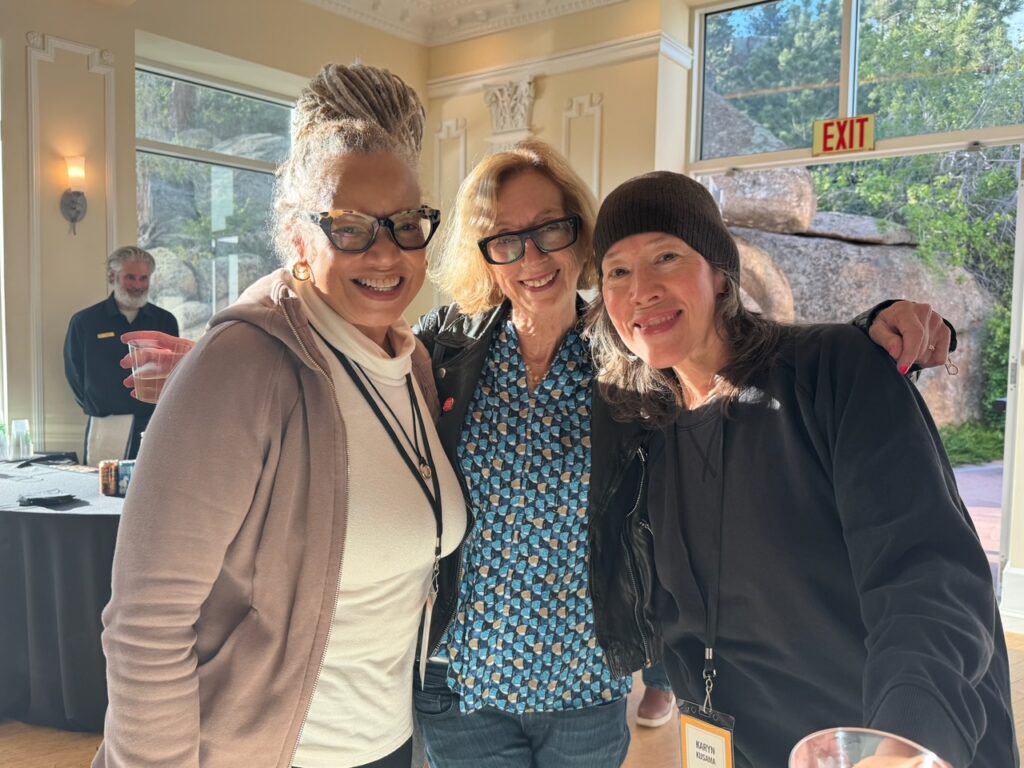
We ended the lab with a heartfelt celebration of the crew and staff led by deputy director Ilyse McKimmie, operations senior manager Andrea Mgebroff, production supervisor TJ Doctor, and post-production supervisor Stas Bondarenko, whose dedication and generosity made it all possible. Their behind-the-scenes unwavering commitment to the lab was the backbone of this experience.
This year’s cohort also featured exciting firsts — Lana Wilson, a celebrated documentarian, joined us with her first fiction film. And we welcomed our first co-writing, co-directing, and co-acting team: Andrea Ellsworth and Kasey Elise, whose creative partnership electrified the lab. We also had several first-timers as creative advisors with director Jason Reitman, DP Jomo Fray, and editor Joi McMillon.
All of our advisors brought wisdom and care. Nicole Holofcener (Walking and Talking) and Rick Famuyiwa (The Wood) — both of whom once sat in the fellows’ seat — returned to guide this new generation.
Our work didn’t end there. All of our fellows continued their journeys with the Screenwriters Lab, which featured a writing intensive led by the legendary Joan Tewkesbury, followed by one-on-one meetings with creative advisors led by artistic director Howard A. Rodman and including two of our former fellows, Darnell Martin (I Like It Like That) and Haifaa Al Mansour (Wadjda). It also featured a conversation with screenwriter Jenny Lumet about Rachel Getting Married and an inspired group discussion about endings and what you want your audience to feel, understand, inspire, and resonate for them.
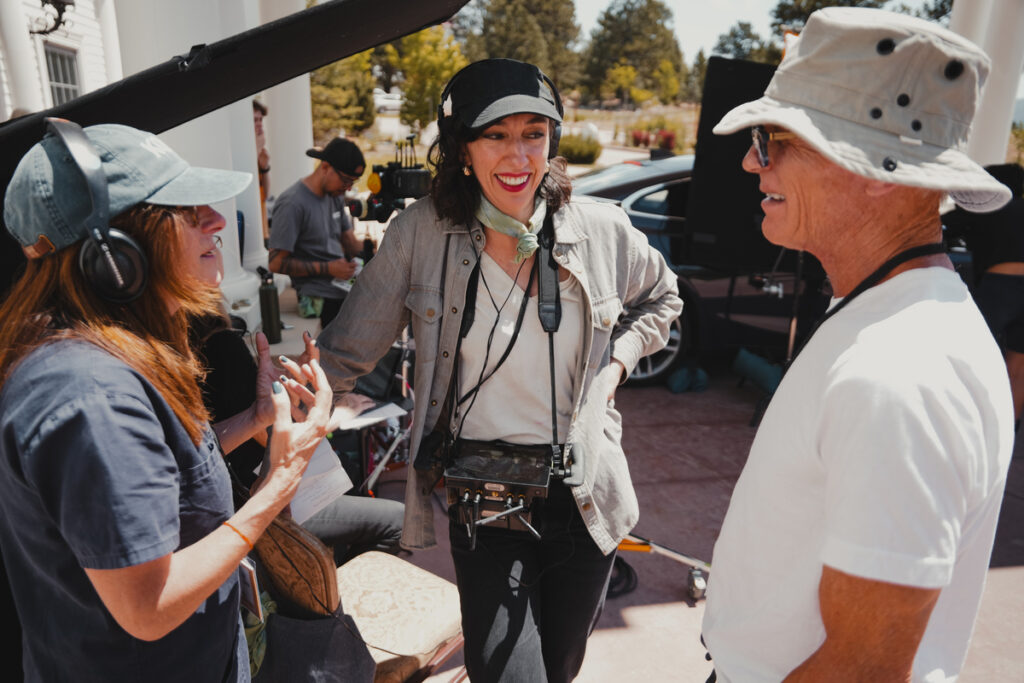
In Santa Fe, New Mexico, our Native Lab — beautifully led by Adam Piron — supported six powerful new voices in Indigenous cinema. The cohort thrives on community-building while refining their feature and episodic projects with Indigeneity at their core. The Ignite Lab, which kicks off the yearlong Sundance Institute Ignite x Adobe Fellowship under Toby Brooks, championed 10 emerging storytellers, individuals aged 18 to 25, with fresh, compelling visions.
Our Documentary Film Program created two unique Editing Residencies, giving filmmakers time, space, and support to shape their work. And our Producers Program, co-led by Shira Rockowitz and Kristin Feeley, guided 11 fiction and nonfiction producers through the nuanced realities of storytelling, budgeting, financing, and creative leadership. Even this week our Trans Possibilities Intensive is bringing six artists together online to hone their skills and strengthen their community.
All of these fellows will continue to receive yearlong support from Sundance Institute staff and mentors, along with access to Sundance Collab and our ELEVATE track, designed to help artists build sustainable creative lives. These resources often make the difference between a project stalling and a story reaching audiences around the world.
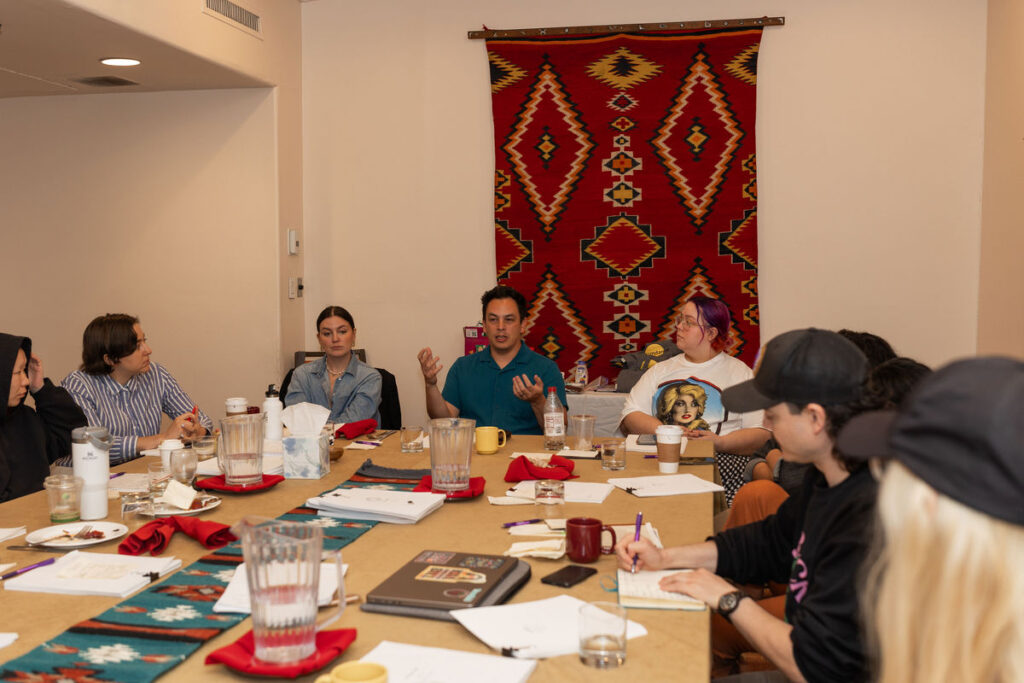
Speaking of artists meeting their audiences, this past year also marked some incredible milestones for Sundance Institute–supported films going into production and premiering globally. The President’s Cake, directed by Iraqi filmmaker Hasan Hadi, won the Camera d’Or for Best First Feature Film and the People’s Choice Audience Award at the Cannes Film Festival. Hadi was supported by our Screenwriters, Directors, and Producers Labs, Catalyst Forum, the NHK Award, and Artist Accelerator. Also at Cannes, Chilean writer-director Diego Céspedes’ The Mysterious Gaze of the Flamingo won the top Un Certain Regard award — another major moment for a filmmaker nurtured through our labs.
And, let us not forget that at the 2025 Film Independent Spirit Awards earlier this spring, Sundance Institute Labs–supported filmmaker Sean Wang with his film Dìdi (弟弟) won Best First Feature Award and Best First Screenplay awards. Rashad Frett won the Directing Award: U.S. Dramatic at the recent Sundance Film Festival for his first feature Ricky. And Walter Salles, whom we supported on his second feature, Central Station — which won the Golden Globe for Best Foreign Language Film — just won the Academy Award for Best International Film for I’m Still Here. It was electrifying to be a part of these moments and see how far the stories and artists we champion travel.
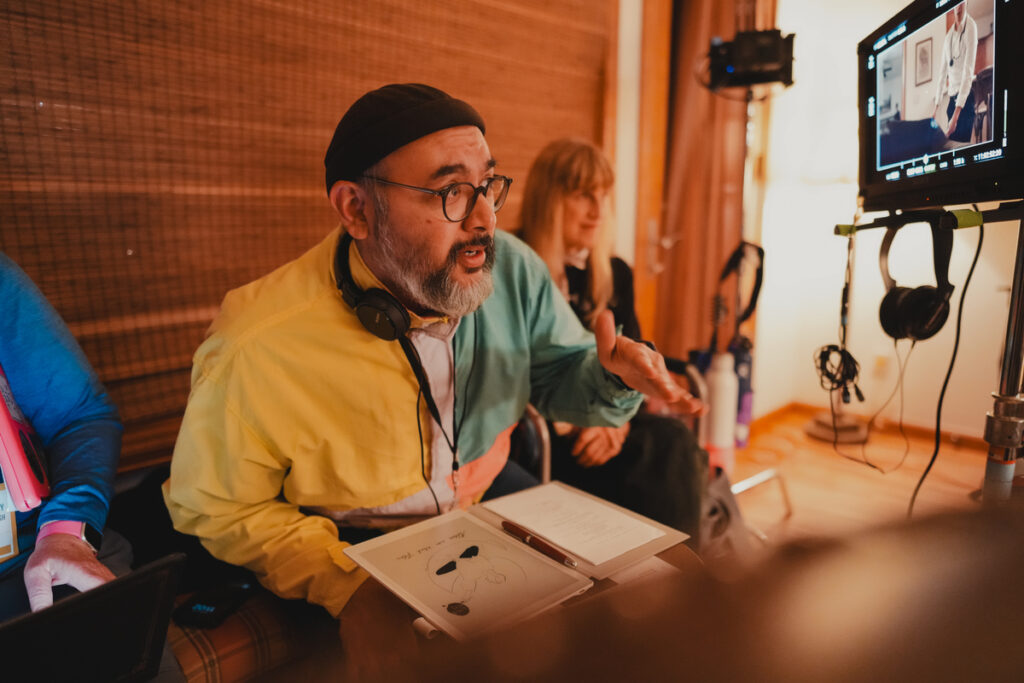
At the heart of all this is a simple truth: Community powers everything we do. When artists are supported in their boldest visions — creatively, emotionally, strategically, and financially — culture shifts. We’re building that future now: one rooted in authentic storytelling, opportunities for more expansive production and distribution, and a global community of artists who uplift and inspire one another.
We look forward to all that’s ahead and thank you so much for being part of this journey.
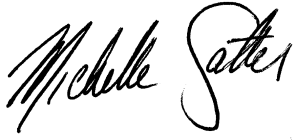
Michelle Satter
Founding Senior Director, Artist Programs
